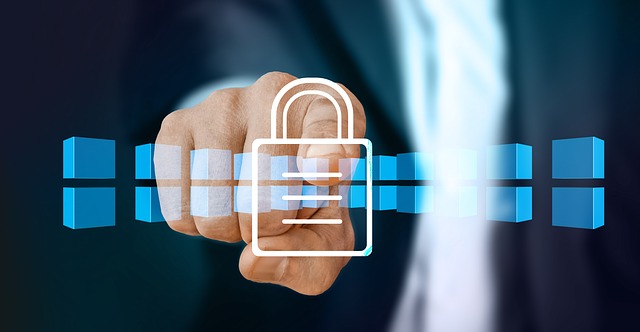Spotting and Avoiding Scams:
To protect your digital assets, it’s important to NEVER GIVE YOUR INFORMATION OUT. This includes your private address, seed phrase, passwords, or other private information. DO NOT SHARE WITH ANYONE. This gives another access to your assets.
Can you spot the warning signs of a crypto scam? If you receive an official looking text, message, or e-mail asking you to give them information. Another popular one is “FREE GIVEAWAYS”. Many fall for these scams. Send 100 coins and receive 500 back or similar. I have yet to see a valid giveaway in this manner. These are all over YouTube and social media and even include reputable speakers in order to entice you in the scam. DON’T FALL FOR IT!!!
How much crypto has been hacked? According to a report from Verge, Crypto.com admits over $30 million has been stolen by hackers. Report date Jan 2022. TAKE CAUTION OF SCAMS!
How to do your own research (DYOR) on scams? Many valid sources exist on Telegram, Discord, Twitter, and YouTube. Do some searching and conduct proper research to avoid losing or being scammed.
If it feels like something is wrong, it probably is. It is better to make sure than make a mistake.
Storage of Crypto:
Why do people feel it’s safe to keep their Crypto & Digital Assets on an exchange or other centralized platform vs a private (self-custody) wallet? Most feel comfortable because it is the normal way to hold assets, using a third party like a bank or an investment firm. Most people have just handed their assets to one of these third parties and pray their assets remain safe and grow. Most people are not use to self-custody despite self-custody being the most secure way to hold assets. You, and only you, are in full control of your assets with self-custody wallets.
For this reason, it is encouraged to research this topic so you can make an educated decision on where to store your assets. Many prefer taking assets off exchanges and storing in more secure, private wallets.
Store your seed phrase and private information off line and in a safe place. Multiple places if you can. Why? What happens when crypto currency wallet access is lost? Whether your pc fails, internet is lost for a brief time, new hardware is installed, or whatever other possible disruption can happen, having additional ways to access your assets is simply a smart risk management strategy. When a user loses wallet access, it has the effect of removing money out of circulation. Lost crypto assets still remain in the block chain. However, lost crypto assets remain dormant because there is no way for anybody to find the private key(s) that would allow them to be accessed again.
Transferring Crypto:
What if you send crypto to the wrong address and execute without double checking the transaction? Because crypto is irreversible, the coins are lost unless of course the happy recipient feels compelled to return you coins. Some choose the centralized platforms for this reason. If the platform can or chooses to reverse a transaction is completely up to that platform. There are no guarantees. Please check with that platform if this should happen to you.
It is also very important to remember to never send a coin to a different coin’s address. I.e.: do not send Bitcoin to an Ethereum address or vice versa. The coins can become lost and unrecoverable. Always insure you send a coin to an address for the identical type of coin.
Some private wallets do permit you to add coins to their wallet via the “Add Custom Token” option. Some have recovered lost coins due to sending to the wrong network. If you “add” the technical information regarding that coin, the coins may appear in that wallet. Again, not a guarantee but may be possible.
Extra Protection Practices:
Many wallets and/or exchanges have pass phrases to enter in addition to a password. These are more secure as the numerous “bots” or hackers can’t pass through this type of security very easily. Yes, it is an extra step to access your account however; it is also an extra layer of security insuring the safe keeping of your assets.
Another option many offer is the use of the Google Authenticator App or text/email confirmation for actions requested for access.
Security of Bitcoin:
Is Bitcoin secure? The technology of Bitcoin, the protocol and the cryptography, has a strong security track record, and the Bitcoin network is probably the biggest distributed computing project in the world. The largest and most common vulnerability for Bitcoin is user error. Bitcoin wallet files that store private keys are accidentally deleted, lost or stolen by hackers. It is highly recommended to secure bitcoins via cold storage and not online or even in a file on your pc.
Transaction TXHASH/Address/Block Look Up:
If you sent coins to a different network, been scammed, or a transaction is taking longer than normal, you can search the network using the “TXHash, address, or block” address to look up the transaction. Every network has a Hash lookup site. When your transaction is confirmed you can see the transaction details. Here are a few examples of some of the networks. A few searches will get you informed as to how the backend transactions records work and operate.
BTC for (BTC)(ETH)(BCH)(LTC) CARDANO (ADA) COSMOS (ATOM)
FLARE (XRP SBG) ALGORAND (ALGO) Binance (BNB)
Note: these sites will include transactions within their network. Example: TERRA (LUNA) transactions can be searched on COSMOS as it is built using the Cosmos network. Please research the coins so good that you understand what network they are on and what that network is all about. You may thank yourself later for digging a little deeper in your research before making a decision.

0 Comments